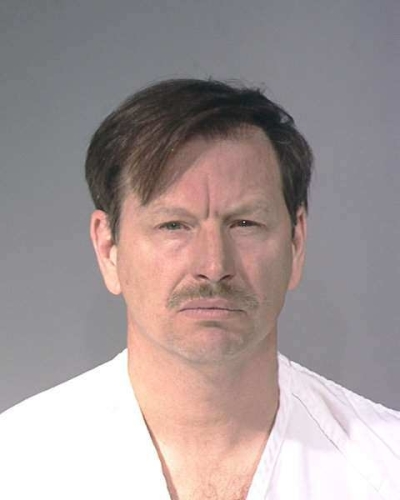Shrewd as Snakes: The Psychopath and the Christian

Some years ago I did an interview on the topic of my book Finding God in the Shack (a companion to Paul Young's bestseller The Shack). At one point in the interview I offered the following radical example of grace and forgiveness:
When I was growing up, I lived near the Pacific Northwest, and we got the Seattle TV stations. I remember hearing every day about this person called The Green River Killer. He was a serial killer who had killed more than 70 women in the Pacific Northwest.
Gary Ridgway was caught in 2003, and they had a sentence hearing for him. At the hearing, they had victim impact statements that I saw. There were people whose daughters, sisters, and so on, had been brutally assaulted, raped and killed by this guy. Some of them said, "You're going to burn in hell for eternity," and other things, and he sat there with his head bowed.
But one guy got up there and said, "God told me to forgive. He didn't say who to forgive, He just said forgive." And suddenly, this person Gary Ridgway, who's supposed to be a sociopath, had big tears rolling down his cheeks. I thought at that moment that forgiveness is the most powerful force in the universe. (Source)
Few images are as powerful as the picture of a completely debased murderer being extended forgiveness by a bereaved parent. And yet, that's what God's radical grace looks like.
Meeting the Psychopath
A few months after that interview, I mentioned the Ridgway story to a Christian friend who happens to be a clinical psychologist. To my surprise, he didn't have the same impressed reaction as the interviewer: instead of smiling and nodding in agreement at the wonder of grace, he looked skeptical.
My friend then observed that if Ridgway is a psychopathic personality, and the evidence suggests that he is, then the man could not feel sorrow for his sins at all: he could only feel pity for himself. In short, if Ridgway was a psychopath, then the event that I interpreted as the moment that grace broke through to a sinful heart was, in fact, nothing more than an instance of indulgent self-pity.
That unsettling revelation prompted me to spend a couple months reading up on the personality disorder commonly known as psychopathy. I learned that psychopathy is a disorder which renders individuals utterly incapable of grasping moral principles of good and evil or right and wrong. To give an analogy, the psychopathic personality is to morality as the colorblind person is to color: just as the colorblind person is unable to see color, so the psychopathic person is unable to "see" moral values and obligations.
Perhaps most disturbingly, the evidence suggested that psychopathy is untreatable. In fact, the more therapists attempt to treat a psychopath the more the psychopath becomes adept at manipulating others.
By one estimate, approximately 1% of the population would qualify as clinical psychopaths. However, it's also important to understand that few psychopaths are serial killers like Ridgway. Indeed, psychopaths can be found throughout society from the CEO of a major corporation to the perpetually unemployed fellow who forever sponges off his "friends". Bottom line: the chances are that you probably know at least one clinical psychopath.
Why Christians are Especially Vulnerable to Psychopathic Exploitation
Since psychopaths lack the constraints and guidance that come with true moral awareness, they tend to live their lives by the callous, self-interested exploitation of others. That in itself suggests that we should all become more familiar with the psychopathic personality type so that we are less likely to become their victims.
However, above and beyond that general warning, I believe Christians are particularly vulnerable to being exploited by psychopaths. To begin with, the Christian worldview accepts the call for radical grace in forgiving the evil actions of others. The psychopath can readily use that commitment to grace and forgiveness to exploit the good will of well-meaning Christians. To put it bluntly, the inclination to forgive and restore an individual who appears to express repentance – the tendency to think the best of others – can offer psychopaths a particularly effective means to use and abuse their victims.
Consider the idea of so-called "trophy conversions": that is, extreme versions of a sinner coming to grace which are used as examples to buoy the faith of Christians in the power of the Gospel. Evangelicals in particular have long gravitated toward trophy conversions because they can powerfully exhibit God's grace and mercy in very tangible ways. For example, growing up in the church in the 1970s everyone I knew had read Nicky Cruz's autobiography Run Baby Run which told of his life as a notorious gang leader in New York who was radically transformed by the Gospel.
Stories like that of Nicky Cruz can indeed be wonderful and inspiring. And in that sense a "trophy conversion" can indeed illumine the power of the Gospel. But we should recognize that psychopaths can readily exploit this Christian narrative of grace for their own ends.
Let me give you one striking example. In 1989 James Dobson interviewed notorious serial killer Ted Bundy on the night before his execution. During the interview, Bundy blamed his history of murder, cannibalism, and necrophilia on pornography. This explanation was appealing to Dobson who had a vested interest in highlighting the dangers of pornography. But as far as Bundy goes, it was simply an excuse to avoid responsibility for his uniquely heinous crimes. As Stephen Michaud and Hugh Aynesworth rightly observe, this was "his newly contrived 'devil made me do it' defense to help explain his almost unfathomable murder career." (The Only Living Witness: The True Story of Serial Sex Killer Ted Bundy (Authorlink, 1999), 340).
What is more, Bundy claimed to have converted to Christianity in jail. And the Christian keen to elevate the most extreme trophy conversions may have been inclined to believe him: Dobson certainly was. But the fact is that Bundy cleverly manipulated Dobson by telling the respected psychologist exactly what he knew evangelicals wanted to hear. In one surreal moment, Dobson invited Bundy to share about his loneliness in prison, in short inviting sympathy for a psychopath who murdered and mutilated at least thirty women.
Fortunately, Bundy was in prison at the time. But the way he played Dobson is a sobering example of how the psychopath can manipulate well-intentioned Christians for their own nefarious ends.
Conclusion
I said above that psychopaths do not respond to conventional treatment. Of course, I also recognize that God can in principle heal a psychopath of their personality disorder. But the fact that radical transformation of the true clinical psychopath is theoretically possible doesn't change the fact that such transformations rarely if ever occur. This simple fact suggests extreme caution when interacting with psychopaths.
But where to begin? My suggestion is that Christians everywhere should familiarize themselves with the psychopathic personality profile as described in Robert Hare's Psychopathy Checklist (the premiere clinical tool for identifying psychopaths). That is at least a start in equipping ourselves and our communities to follow the words of Jesus: "I am sending you out like sheep among wolves. Therefore be as shrewd as snakes and as innocent as doves." (Matthew 10:16, NIV)




























